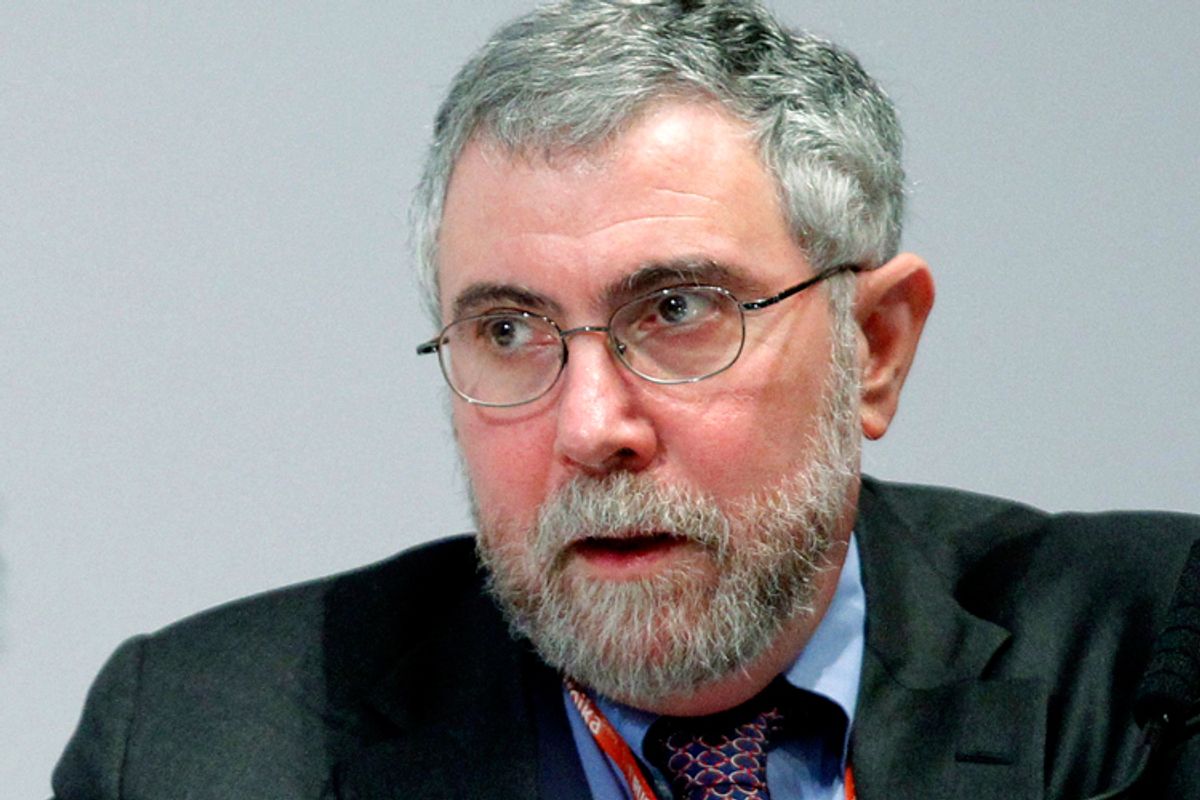In a new Op-Ed, New York Times columnist and Nobel Prize-winning economist Paul Krugman explained why we're seeing so many global economic bubbles, which he describes as "a variant on the same old story: investors loved these economies not wisely but too well, and have now turned on the objects of their former affection."
From the column:
O.K., the other obvious culprit is financial deregulation — not just in the United States but around the world, and including the removal of most controls on the international movement of capital. Banks gone wild were at the heart of the commercial real estate bubble of the 1980s and the housing bubble that burst in 2007. Cross-border flows of hot money were at the heart of the Asian crisis of 1997-98 and the crisis now erupting in emerging markets — and were central to the ongoing crisis in Europe, too.
In short, the main lesson of this age of bubbles — a lesson that India, Brazil, and others are learning once again — is that when the financial industry is set loose to do its thing, it lurches from crisis to crisis.

Shares